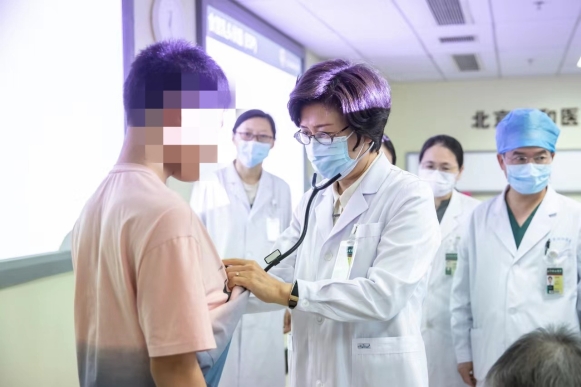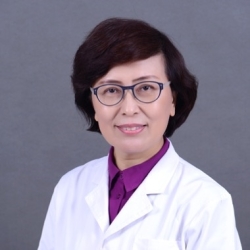Shuyang Zhang: A Leader in China’s Efforts to Tackle Rare Diseases

Rare diseases, despite their name, encompass a vast array of conditions, affecting a significant number of people worldwide. Over 10,000 distinct rare diseases have been identified, affecting around 10 percent of people worldwide,(1) with estimates suggesting 49 to 82 million sufferers in China alone.(2) The vast majority of rare diseases are genetic, and 90 percent lack effective treatment, posing challenges in diagnosis, treatment, and lack of standardized care.(3)
Peking Union Medical College Hospital (PUMCH) has become a leader nationally in advancing the study and treatment of rare diseases. Zhang Shuyang, MD, PhD, the first female president of PUMCH and concurrently vice president of the Chinese Academy of Medical Sciences and Peking Union Medical College, has played a pivotal role in establishing PUMCH’s preeminence in this field. For two decades, she has propelled China’s rare disease agenda forward through coordination with key stakeholders, leveraging resources, promoting new approaches to clinical diagnosis and treatment, and facilitating research and industry collaboration.
Drawing from international experiences, Dr. Zhang led the establishment of a rare disease multidisciplinary team and a joint outpatient clinic at PUMCH, offering “one-stop” medical services that streamline patient care across specialties.(4) Expanding this model, she established the National Network to Collaborate on Diagnosis and Treatment of Rare Diseases (NCDTRD) under the guidance and support of the National Health Commission of the People’s Republic of China, connecting 324 hospitals throughout China to enhance diagnostic and treatment capabilities through shared knowledge and continuing education. Her leadership in establishing the National Rare Diseases Registry System (NRDRS) has further advanced research, with over 100 hospitals registering more than 71,000 cases, contributing to 303 academic publications and 89 clinical trials for rare disease medications. Dr. Zhang advanced the national implementation of various policies, notably ensuring patient access to medicines for rare diseases.(5) She led the development of medical expertise in rare diseases in China, especially by providing training opportunities to young professionals, significantly improving the diagnosis and care of rare diseases. Through her leadership, numerous groundbreaking initiatives were realized in the field of rare diseases.
On February 29, 2024, two milestone events at PUMCH will take place as an observance of the 17th International Rare Disease Day: the inauguration of PUMCH’s rare disease ward – China’s first rare disease specialty ward – and the launch of the Institute of Innovations in Diagnosis and Care for Rare Diseases, a collaboration with ten leading Chinese institutions. These events build on Dr. Zhang’s commitment to draw greater attention to rare diseases and, ultimately, to give many individuals brighter prospects for healthier lives.
References
- Haendel M, Vasilevsky N, Unni D, et al. How many rare diseases are there? Nat Rev Drug Discov. 2020;19:77-78. doi: 10.1038/d41573-019-00180-y.
- Guo J, Liu P, Chen L, et al. National Rare Diseases Registry System (NRDRS): China’s first nation-wide rare diseases demographic analyses. Orphanet J Rare Dis. 2021;16:515. doi: 10.1186/s13023-021-02130-7.
- Rare diseases, common challenges. Nat Genet. 2022 Mar;54(3):215. doi: 10.1038/s41588-022-01037-8. PMID: 35288710.
- Xie J, Jin Y, Shen M, et al. A Patient-Centric, Coordinated Care Model for Rare Diseases: The Multidisciplinary Consultation Program at Peking Union Medical College Hospital. NEJM Catal Innov Care Deliv, 2023; 4(s1). doi: 10.1056/CAT.23.0297.
- Zhang S, Chen L, Zhang Z, Zhao Y. Orphan drug development in China: progress and challenges. Lancet. 2019 Sep 28;394(10204):1127-1128. doi: 10.1016/S0140-6736(19)32179-8. PMID: 31571591.

